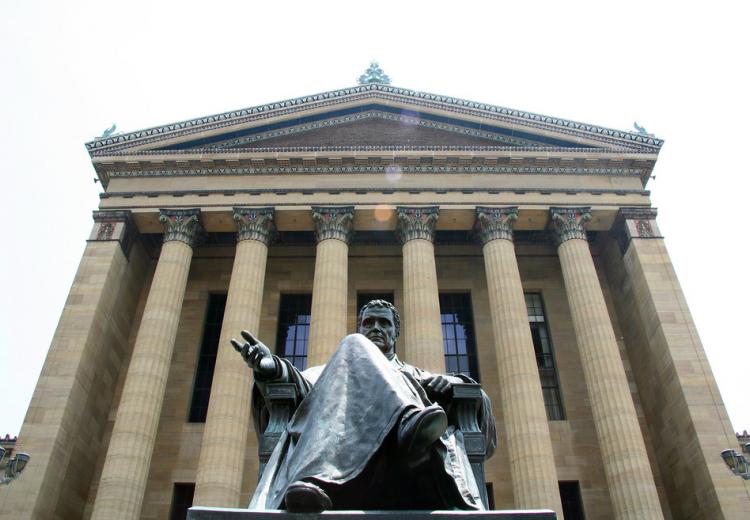John Marshall, Marbury v. Madison, and Judicial Review

Statue of Chief Justice John Marshall outside the West entrance of the Philadelphia Museum of Art.
"It is emphatically the province and duty of the judicial department to say what the law is."
—Chief Justice John Marshall, in Marbury v. Madison, 1803
Who was the most influential American of the founding era of the United States: George Washington, due to his military and political achievements? Thomas Jefferson, for the Declaration of Independence and the acquisition of the Louisiana Purchase? James Madison, for his "writing" of the Constitution and subsequent service in the House of Representatives, as Secretary of State, and President? Or might it be John Marshall, who served as Chief Justice of the U.S. Supreme Court for 34 years, longer than any other Chief Justice, and whose ground-breaking decisions still affect the lives of every American?
This lesson is designed to help students understand Marshall's strategy in issuing his decision, the significance of the concept of judicial review, and the lasting significance of this watershed case.
Guiding Questions
What is the proper role of the Supreme Court regarding laws passed by Congress and state legislatures?
How has the establishment of judicial review shaped the power of the Supreme Court in U.S. history?
To what extent does the Supreme Court establish laws?
Learning Objectives
Explain the role and responsibilities of the Supreme Court with regard to interpreting the U.S. Constitution.
Analyze the competing perspectives that resulted in the Marbury v. Madison case.
Evaluate the lasting significance of Marbury v. Madison and judicial review.
Evaluate the nature of how a system of checks and balances has functioned and changed over time.
